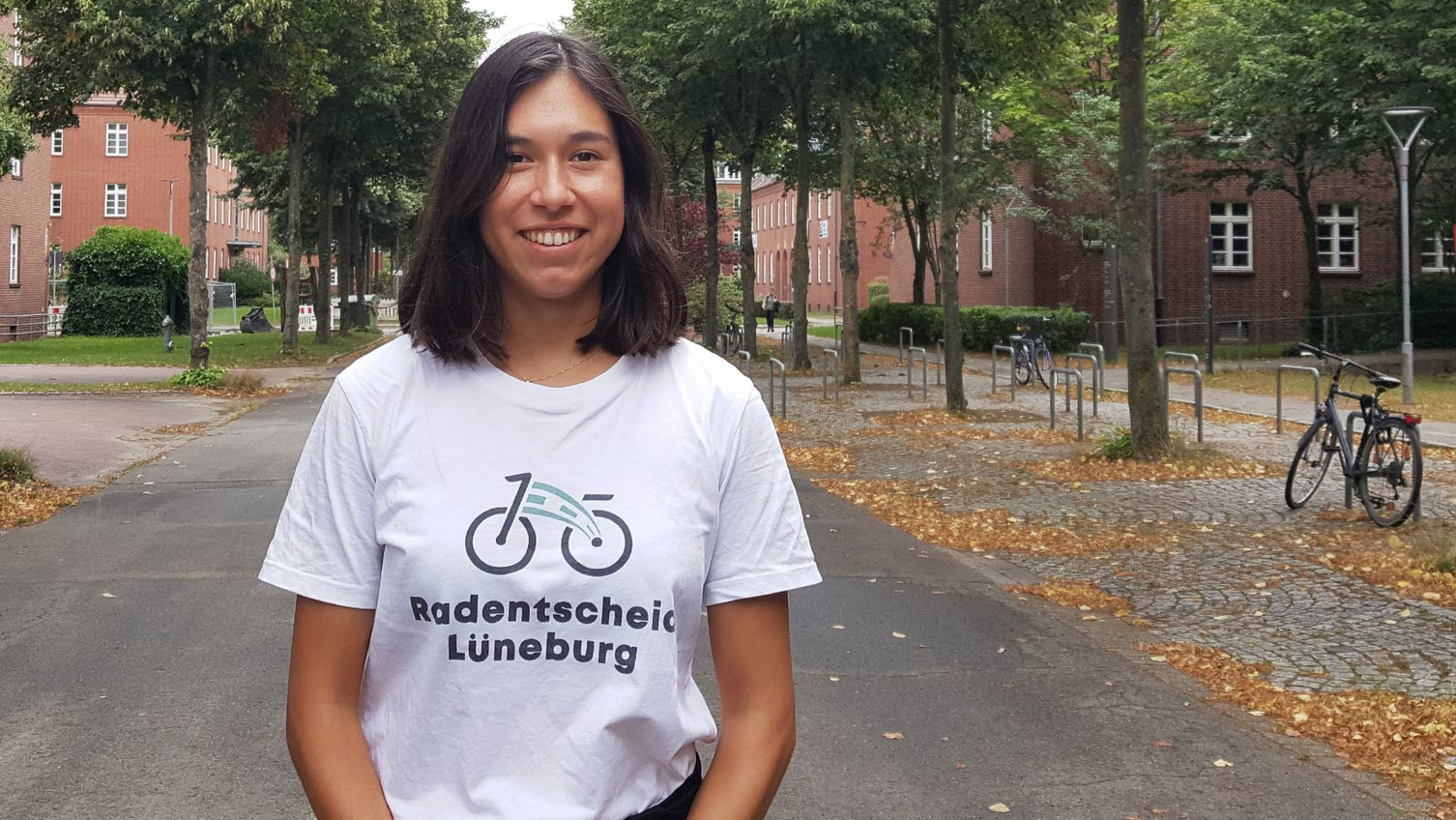Alexandra Augustin and the "Radentscheid Lüneburg"
2021-08-25 As one of three spokespersons for the initiative "Radentscheid Lüneburg", Alexandra Augustin campaigns for more sustainable mobility in the Hanseatic city. She is studying environmental sciences at college.
I always thought you did your Abitur, studied straight away and had a bachelor's degree by the time you were 21," says Alexandra Augustin. The student, who grew up in Lyon, France, moved to Germany directly after finishing school in France and began studying aircraft construction in Hamburg. After only a short time, she dropped out of her studies and researched alternatives. She heard about the possibility of doing a Voluntary Ecological Year and applied to JANUN, a network in nature and environmental protection in Lüneburg. "After 7 months at JANUN, I became much more environmentally aware. That was a turning point in my life," Augustin reports. She decided to study environmental sciences at Leuphana. "At first I was often frustrated that others could express themselves better linguistically. I found the university jargon difficult. But with every presentation, with every term paper, my German got a little better. It's like sports: if I train a lot, I can be good!"
After four semesters, Augustin was faced with choosing a topic for her upcoming Bachelor's thesis: "I discovered my heart's topic through a complementary seminar with Dr Antje Seidel and Prof. Dr Peter Pez on the 'Lüneburg Maps' project." In the cartographic project, an open database is being developed that serves, for example, as the basis for routing apps or information campaigns for sustainable mobility in and around Lüneburg. Inspired by the seminar, Augustin went on to study sustainable mobility with a special focus on bicycle traffic and became involved in the initiative "Radentscheid Lüneburg".
"With the Radentscheid, we make local political demands," explains Augustin. For example, they demand an attractive cycling infrastructure and a seamless network of cycling routes in Lüneburg so that as many people as possible can get around in a climate-friendly way. "With regard to climate policy and the traffic transformation, we realise, especially in an election year, how we can put pressure on local politics with the bicycle referendum." With the help of a referendum, the initiative wants to promote comfortable and safe cycling in Lüneburg.

